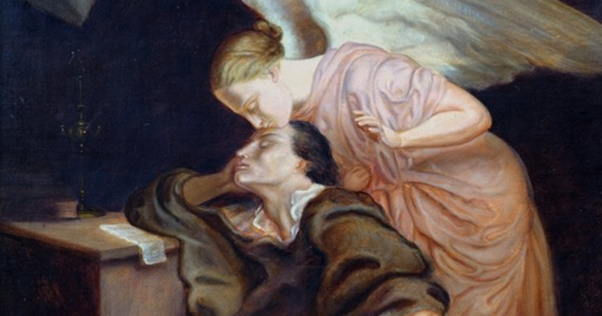Inception
- Mark Sanders

- Aug 19, 2019
- 3 min read
Updated: Jan 20, 2020
Where do ideas come from? Does the Muse have a cell phone number?

Stephen King says that the most frequent question asked by fans is, "Where do your ideas come from?" It's a great question to consider, so much so that he often includes either a foreword or afterword in his books, especially the short story collections, that deal with the inception behind each story.
So today, I want to talk about the inception behind Dylan's Treasure. In the future, after the second book premieres, I'll talk about the origin of the ideas behind that one. It was the early Nineties, and I was living alone in St. Louis, starting my career as a graphic designer and thinking about where my writing might lead. I had written an extremely rough draft for a novel in college, but I wasn't interested in returning to that idea.
I've always been interested in the Swords and Sorcery genre. I was a dedicated Dungeons and Dragons player in high school, and the first R-rated movie I saw with permission was the King Arthur epic Excalibur. There's always been something about knights in armor, mystic wizards, and dangerous dragons that's always held my imagination.
Dylan's Treasure began as a short story when I started writing it. My goal was to write a story that was so vivid in its descriptive detail that a reader would be able to see the scene as clearly as if they were watching it on a big screen in a movie theater. You can see that especially in the first few chapters of the book.
Dylan took shape first as a character, the son of privilege who longs to be one of the common people. Of course, this is a common trope, but I worked hard to make him both real as well as likeable. The solution to that challenge came when I found his desire to be considered common to be a character flaw rather than an advantage. Much of the conflict in the story comes from his dishonesty by omission of details.
Siannon was a late addition to the story that developed once the length of the work was going to be much longer than short story length. She originated out of the need for Dylan to find something worthwhile at stake to spark his interest in a tournament he would have gladly bowed out of the day before had he been given the chance. It didn't take long for her to become the co-protagonist of the story.
I wanted Siannon to be real as well, but she doesn't really have any character flaws in this first story. She's strong, but you also see her primarily from Dylan's point of view. That's indicative of my age (mid-twenties) and probably the fact that I was single, so she's definitely an idealized woman in my imagination.
At the same time, Siannon was never going to be some kind of damsel in distress. I wanted her, from the start, to be as smart, tough, and skilled as any of the men. It's the real hook in the story, and it becomes the root of her maturation in the second book. She still doesn't have any real flaws, but I think maturity and experience helped me write a more three-dimensional character.
I didn't discover Kane, Dylan's older brother and the book's antagonist, until Dylan had arrived at the castle. I knew that a short story could sustain a lot of description and character development without much plot, but that kind of experimental form for a novel would not be suited for what I wanted to write. He's essentially a foil for Dylan; the younger prince would be happy as a common mason, while the older one seethes with resentment that he will likely never be king himself. This long-standing family conflict drives the plot to its resolution.
I did a ton of research on medieval life in Great Britain as well as the geography and language of Wales, and much of this informs the realistic parts. Things like magic were a hodgepodge of different magical influences, but I wanted the magic to be grounded in a type of early proto-scientific thought as well. (Lev Grossman does this so well in his Magicians trilogy.)
Ideas are only that, however—ideas. They still have to be communicated with nouns, verbs, adjectives, prepositions, and a smattering of carefully chosen adverbs (wither the humble adverb, object of such scorn...). The writing itself came painfully slow, to the point that I gave up and put the book in a drawer for several years. I'll save the rest of that story and a few more anecdotes for Wednesday's blog.





Comments